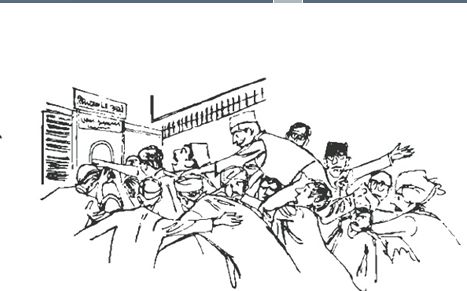I have written about it on this blog on December 5 2007: "An Evening in Paris (1967) is one of my favourite movies.
First time, we (my brother, my cousin, I) watched its matinee show (3 PM) at Kolhapur (Venus cinema?) by standing in an overwhelming queue like the one below to buy a ticket.
I thoroughly enjoyed it. What did I like?
Shammi Kapoor, Shammi Kapoor, Shammi Kapoor…music of Shankar - Jaikishan, Rajendranath and bikini clad Sharmila Tagore.
In Hindi films, rarely a woman has looked as sensuous as her, without a touch of vulgarity..."
courtesy: the current copyright holders of the feature


